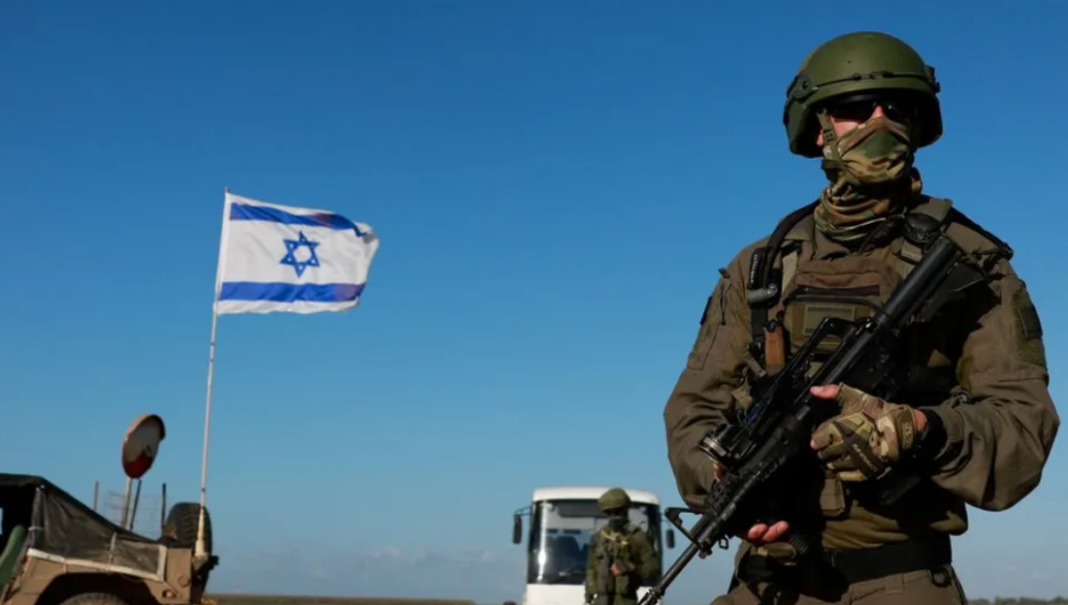(BBC News) The United States is the one country that has real leverage over Israel. And yet, throughout the war in Gaza, Israel has chosen to ignore much of the advice of its closest ally.
The US government says its support for the war against Hamas is “ironclad”, but it has repeatedly raised concerns about the failure of the Israeli army to protect civilians and the lack of humanitarian access afforded to the people of Gaza.
For seven months, the US has gradually stepped up pressure on Israel. It has advised privately. It has warned publicly. It has stopped vetoing condemnatory resolutions at the United Nations. It has sanctioned Israeli settlers in the occupied West Bank.
In a telephone call a month ago, President Joe Biden told Prime Minister Benjamin Netanyahu he would reduce US support if Israel did not allow fleets of aid lorries to cross the border into Gaza.
Yet much of this counsel has fallen on deaf ears. So now the US is beginning to wield its biggest stick.
The US is by far Israel’s biggest source of weapons and ammunition. By law, it provides Israel with $3.8 billion of military aid each year, designed to give the country an advantage over neighbouring countries. The US Congress last month passed a bill providing a further $14 billion of military support.
Now the Biden administration has for the first time delayed a shipment of munitions to Israel. A senior administration official confirmed to the BBC that the delivery of thousands of 2000-pound and other bombs has been paused.
The official said they were also reviewing other weapons sales, including equipment that helps convert free-falling bombs into precision-guided munitions.
So why is the US finally reaching for perhaps its biggest lever of influence over Israel? A first answer is the proposed military operation against Hamas in Rafah. The US and many western countries fear this would lead to mass civilian casualties and a humanitarian catastrophe.
US officials say the bombs they have delayed are the kind that might be used in Rafah and would have devastating consequences in dense urban settings. The US has signalled that it does not want Israel to attack Rafah, and this is another way of reinforcing that message. One US official told the Washington Post this was a “shot across the bow” to show Israel the seriousness of US concerns.
A second answer is the US government’s desire to maintain pressure on Israel’s cabinet to support a ceasefire deal with Hamas. Negotiations continue in Cairo, and Washington may want to increase the costs that Israel may face for failing to agree a compromise.
A third reason is surely domestic US politics. Biden is coming under huge pressure from Democratic supporters to temper his support for Israel.
It is election year in the US, and opinion pollsters are suggesting that some Democrats – especially younger people – may be reluctant to turn out to vote for Biden in November because of the US role in the war in Gaza. Low turnout could hit him hard in his battle with Donald Trump.
Any decision to withhold military support for Israel comes with risks for the US. Israel could once again simply ignore what its ally was saying and doing. It could effectively call Washington’s bluff and trust that US military support would continue in the long term.
That would be a very public demonstration of diminishing US influence in the world. But equally, Israel might be loath to risk a historic rift with its biggest ally, one upon whom it relied for air defences that protected it from a mass Iranian drone and missile attack just a few weeks ago.
A big test will come when the US State Department decides whether the Israel Defense Forces are using US weapons to commit human rights abuses. A statement about an inquiry is expected soon.
Finally, the US is not Israel’s only ally. And if the US delays arms sales to Israel, then pressure will grow on other countries to do the same, including the UK. Such restrictions would be more symbolic than actual. But they would contribute to Israel’s diplomatic isolation.


